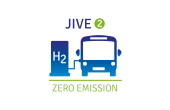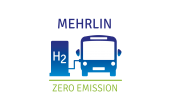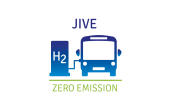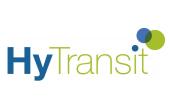The Fuel Cells and Hydrogen Joint Undertaking (FCH-JU, http://www.fch.europa.eu/) has published a new study on the joint procurement of fuel cell buses, with the aim of further facilitating the deployment of fuel cell buses in Europe.
The study worked with 90 different European cities and regions on the business case for the deployment of fuel cell buses and identified a potential demand for over 1,500 buses in these locations.
Bart Biebuyck, Executuve Director of the FCH-JU, said: “Fuel cells and hydrogen offer an answer to decarbonisation of transport due to their convenient driving range, zero harmful emissions and comfort of drive. Thanks to the FCH JU, huge progress has been made in the realm of transport, by supporting viable and competitive alternatives to fossil fuels. Throughout the years of continuous support of the FCH JU, we have witnessed a significant decrease in bus prices, from over €1.2 million to up to €500 thousand currently, following the increase in demand. We are pleased to see an ever growing appetite for 1.500 fuel cell buses in Europe, as our new study shows”.
Building on the experience of the joint tender process in the UK and in Germany, the study highlights best practices for ordering fuel cell buses. Different innovative instruments explored in other countries for placing big orders of fuel cells buses are presented, such as the use of Special Purpose Vehicles for financing or having recourse to a Centralised Purchase Office.
The study analyses the funding and financing for fuel cell bus deployment to make them become a mainstream zero emission choice for public transport providers in cities and regions across Europe. It also outlines possible solutions for further deployment of FC buses beyond the subsidised phase.
The study revealed that there is a strong and growing demand for fuel cell buses in cities across Europe, and that some bus manufacturers and hydrogen suppliers have a desire to push the market into a commercial phase. Evidence from several European bus manufacturers suggests that significant further cost reductions are possible at a scale of production of several hundred fuel cell buses per manufacturer per year.
On the hydrogen supply side, offers are emerging that could give an attractive economic and practical solution to bus operators. Taken together, these developments imply that fuel cell buses could be the most cost-effective zero emission option on certain routes, and could therefore become the preferred choice in cities legislating against diesel-fuelled vehicles from the early 2020s. Increased scale, both in terms of bus order numbers per manufacturer and fleet size per depot, will be crucial in realising these targets, as will continuity of demand as this is needed to bring about economies throughout the supply chain.
The full study is available here: https://www.fch.europa.eu/sites/default/files/Strategies_%20for_joint_procurement_of_FCbuses_final_report.pdf






